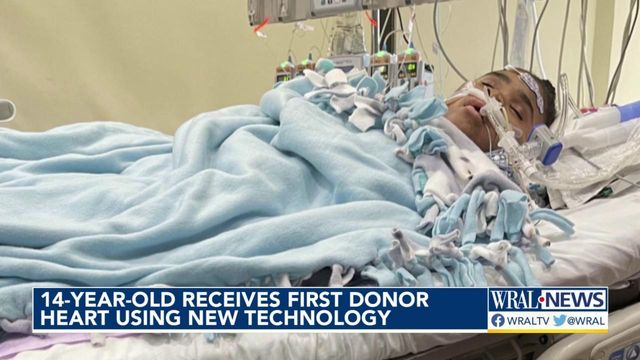New organ preservation technology offers hope for young transplant candidates
A Duke pediatric patient and her family are celebrating a second chance at life, and her transplant surgery offers hope for many children who may one day face the same need.
Posted — UpdatedA Duke pediatric patient and her family are celebrating a second chance at life, and her transplant surgery offers hope for many children who may one day face the same need.
Nae Rice, 14, of Burlington was born with a few setbacks including a genetic syndrome and developmental delays. Her heart was not a worry until last February.
"We thought that it was pneumonia and later to find out a day later it was heart failure," said Nae’s mom Brandaline Rice.
She ended up bringing her daughter to Duke University Hospital, where Nae was put on a portable LVAD (left ventricular assist device), which kept blood pumping through her heart. Her family knew she needed a lifelong solution: a donor’s heart.
However, transplants are rarely done in children. Duke surgeons sought what the FDA calls "compassionate use" authorization to try a new organ preservation technology called "donation after circulatory death" or DCD for Nae.
"The benefit of the technology is that it allows us to use donated hearts from donors who previously we could never use the heart from, and so it increases the number of heart transplants that we think we can do from both adults and children," said surgeon Dr. Nick Andersen.
He added, "This new technology is essentially a way to rapidly reanimate the whole heart in order to restore blood flow."
Nae got her transplant on Aug. 31.
"It didn’t really sink in until after she had her surgery that how big this was, and how it was a game changer," her mother said.
Andersen says this type of transplant would generally be limited to those between the ages of 12 to 18.
Related Topics
• Credits
Copyright 2024 by Capitol Broadcasting Company. All rights reserved. This material may not be published, broadcast, rewritten or redistributed.






